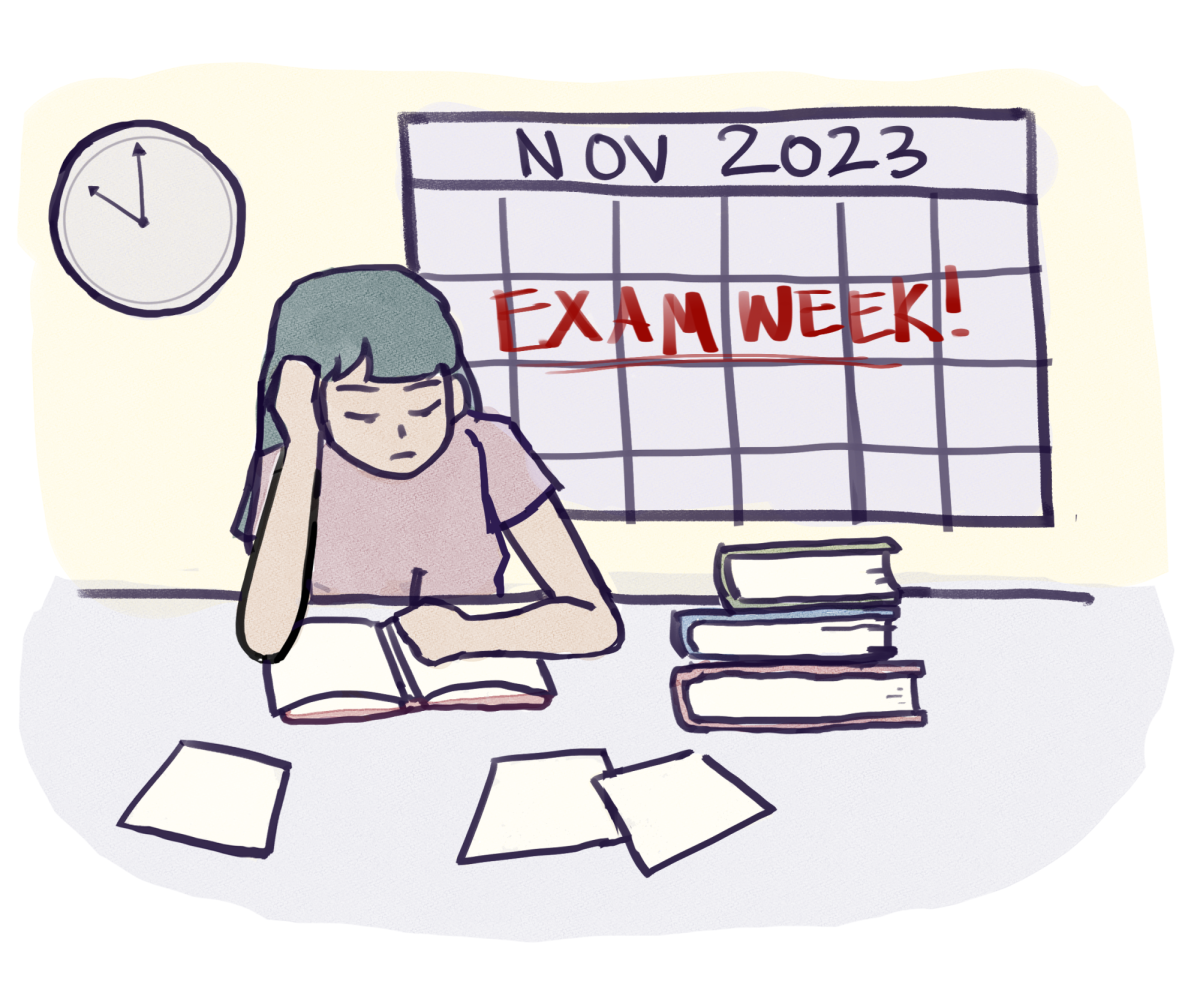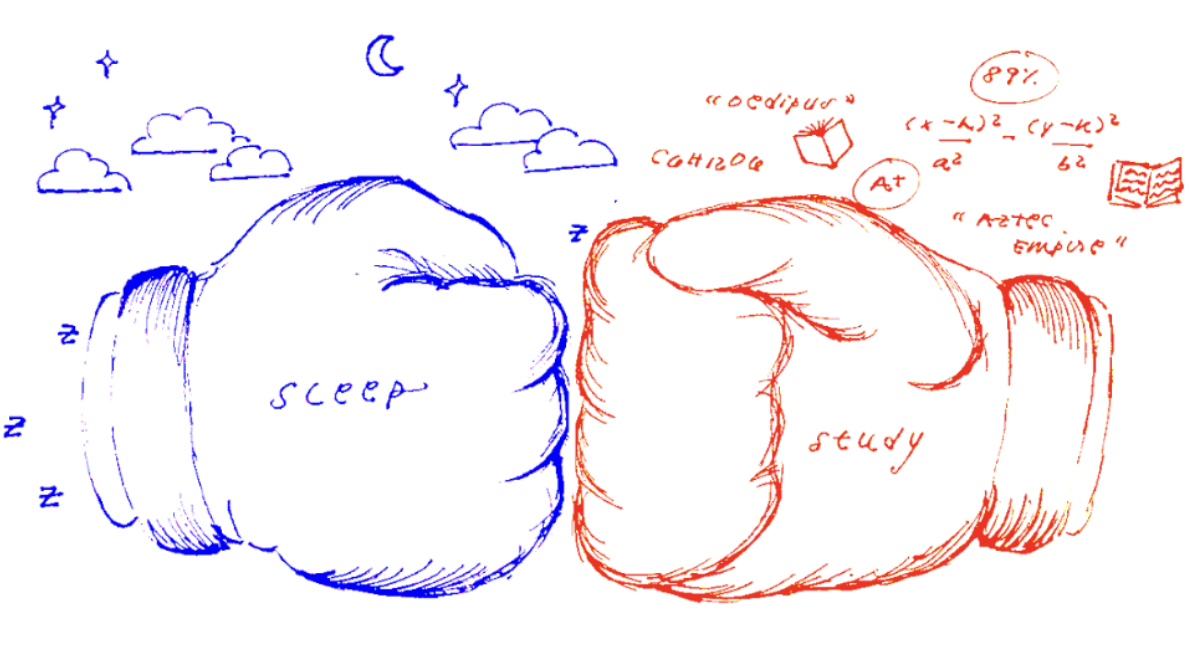Exam week is arguably the most stressful time at Groton. With exams ranging from 20% to 33% of a student’s term grade, their performance in the Schoolroom is often the most crucial factor in measuring their academic success. But for the wellbeing of students and to maintain the core values of Groton School, we should instead weigh final exams less and individual assessments more.
It is common knowledge among overworked Upper Schoolers that Groton’s emphasis on final exams often forces students to choose between their health and their grades. At Groton, we often hear the popular saying that between having a social life, achieving academic success, and sleeping sufficiently each night, Groton students can only choose two of the three. And amid Exam Week’s cutthroat atmosphere, sleep is often the first thing that is sacrificed. Although sleeping through one’s exam doesn’t happen often at Groton, many students enter the Schoolroom deprived of sleep and consequently unfocused. Fourth Former Jamie Abramson reported that he slept around five hours each night this fall’s finals week, and explains that the combination of stress and a chronic lack of sleep “spawned a cycle” that negatively impacted his performance. Additionally, this hampers students’ ability to fully enjoy the fun aspects of Groton life and can also lead to far greater mental health consequences down the road.
Groton prides itself on being an elite academic institution, instilling its students with grit and determination to push through challenging workloads. But how can Groton prevent students from overworking themselves? In past years, the school has already worked to address this concern by removing the requirement for a sixth course, something Dean of Academics Kathy Leggat explains was motivated by mental health concerns caused by the pandemic. In the same spirit, de-emphasizing or eliminating final exams will further encourage students to prioritize their health and sleep over their grades.
Rather than upholding the existing system of majors and exams, where teachers often give three to four majors throughout the term that collectively weigh 70% of a student’s grade and a massive final exam weighing 30%, teachers should shift to a system of shorter, more frequent tests scattered throughout the term. This will result in two positive outcomes: the first is a more in-depth understanding of the material and the second is mitigating last-minute cramming. For a final exam, an instructor must pick and choose from three months of material to test on, omitting topics that might be crucial. But with smaller tests scattered throughout the term, an instructor has the luxury of covering all the bases of a specific unit on a test, prioritizing long-term comprehension over last-minute cursory learning. Placing a greater emphasis on individual tests will encourage students to be better prepared for each test, tackling procrastination while allowing students to be less stressed before finals.
Groton’s foundational mission is to lead young people to scholarship and leadership. Some may view de-emphasizing finals as contrary to that goal, but the small decrease in intensity is worth the while when students become motivated to prepare ahead of time proactively. These are the skills that Groton is called to nurture, skills that will serve students well for the rest of their lives.
Much has changed throughout the last century regarding how to teach and how to find success. The final exam system, which Ms. Leggat claims “predates anyone working at Groton right now,” has not received many major updates. Rather than supporting this outdated and harmful system, Groton must reconsider these practices to keep up with changing times.








